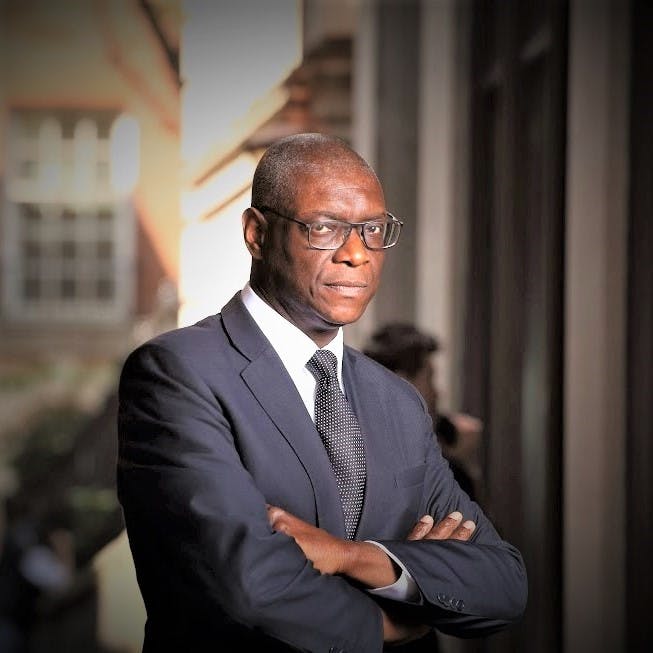
In June 2020, I penned an article (Covid-19, Race and Gen Z) in response to how the world was changing. New words appeared in our narrative, ‘new normal’, ‘BLM’. This coincided with us all working remotely, and a shared sense of humanity swept over us as we looked to make sense of a world that was falling apart around us.
Now, nine months on from the week we all walked out of our offices clutching our monitors and laptops, what has changed? And how has it changed?
In response to George Floyd’s death, organisations in North America and Europe pushed their Black and BAME colleagues to the fore. They held webinars, talking of lived experience and professional journeys, and many of them, no higher in rank than junior managers, looked both bewildered and angry while white colleagues listened, uncomfortable and in some cases, incredulous.
I personally received many calls from industry leaders wanting to explore terminology and phrases, after being chastised by their children in the privacy of their own homes for the use of outdated and inappropriate language. I gave my responses freely and without judgment. I suspect an hourly consultancy rate would have been more appropriate, but then it’s all about perceived value; no one was actually willing to pay for this advice.
So, what was happening across the sport industry? Well, many federations began looking at their boards and non-executive compositions with growing unease. Diversity was now a fact, but now they needed to act. To many, this was hugely uncomfortable but extremely necessary. If the board has no more places, create one! In many cases it was that simple. I was asked by a major federation to double check an all-staff letter that was sent out by the chief executive, outlining their commitment to diversity & inclusion (D&I). I was not paid for my time and my proposal on change was never implemented.
Chairmen and chief executives looked to drive systemic change, as long as that change ensured they remained in-situ. Many hired D&I specialists, whose real role was to educate the board so that they could best interpret existing policy. The BAME and black communities dived straight into the operational void.
There were numerous Black British Power 100 lists, and athletes of all backgrounds were forced to make BLM gestures, while the boards that governed their sports remained spectacularly un-diverse. Diversity is a fact, thank you athletes, you can now stand! Inclusion is the act, and we’re still awaiting board changes in many sport and media groups.
We have outliers where best practice was adopted. These are the organisations where free thinking, curiosity and diverse thinking are driven from the top, not via the reflective lenses of a D&I consultant.
I was asked about my personal thoughts on the Rooney rule. I appeared on BBC Radio 4’s World at One, hopeful and grateful that at last change was coming, opportunities were opening up and the world was listening.
Inclusion is a journey
But the stark truth is this: inclusion is a journey. One that will only be valued once those with the power to effect change compensate properly those who know how to drive that change. Placing BAME or Black executives with Ivy League or Oxbridge education onto boards is NOT diverse. It will not provide the diverse thinking or lived experience needed to really harness a Diversity Dividend. We in the executive search industry, which has struggled to adjust to market demands around D&I more than many other industries during this period, need to recognise that it’s Uxbridge not Oxbridge that will make a difference to our clients. This will mean searching harder and wider for bright candidates who can add real value both to their colleagues and their organisation’s clients. Only this can protect against what Matthew Syed called in his book Rebel Ideas: The Power of Diverse Thinking, the ‘Collective Blindness’ that many organisations face.
Chris Herd, chief executive at Firstbase, and an executive coach, wrote a fascinating article in which he explored ideas around the empowerment of working remotely and achieving a greater work/life balance. Key researched takeaways were that 90 per cent, (yes you heard that right) of people do not want to return to work full-time in an office, ever again. So, what does this mean to a diverse work force, or, an even harder question, to creating an inclusive one?
Creating a diverse workplace culture, when employees are working in physically less diverse settings is a challenge. Those who live in city centres and enjoy the multi-cultural environment city life offers can step outside and embrace it. But for those in rural areas, surrounded by homogenous groups, it’s more difficult to embrace inclusion in all its forms, and this represents a challenge, for business leaders and the HR communities that advise them.
Not everyone has prospered working from home. People’s mental health and well-being have been severely challenged, and not only by the chaos that Covid-19 created. Many individuals do not have the luxury of working from spare bedrooms, home offices or kitchen tables. The disparity is now there for all to see; years of office hierarchies and positioning rendered worthless with the flick of a Teams or Zoom button. As for those with young families who had to home school with little privacy, it was a struggle. The workplace persona, the mental shield that protected us from unnecessary stress and domestic issues, was gone.
Maybe the traditional office is a broken, unproductive working environment, but let’s be clear – it always was for many. (There’s that collective blindness again). Creating a balanced alternative is crucial to delivering a balanced workforce. Our business models decree that companies which implement flexibility around remote working will replace virtually every company that does not.

Diversity & inclusion 2.0
Diversity and Inclusion 2.0 is already in need of delivery. Professional mentoring and how we all interact is critical, especially when striving to achieve a sense of shared purpose. This can be demonstrated by the impact organisations have on their wider communities, and it’s happening now. Great examples are the sport performance sector, which is already fabulously diverse; performance is always chosen over status. Businesses that can create a fair human performance benchmark, reflecting all aspects of an individual, including and valuing professional journeys, will be the ones that survive and thrive.
Since March, the sport and entertainment industry has hurtled towards a sustainable consumer-driven model, with the onus on building credible consumer relationships, whilst adopting monetisation strategies in order to fill the revenue void of empty stadia and live entertainment. All of this has created a thirst for more content, podcasts, short and long-form documentaries, ever more mini-series and the return of the blockbuster movie franchises. The success of Amazon’s All Or Nothing series highlighted an emerging sport-centred documentary trend. These additional revenue streams are creating more opportunities. But the market is not growing, merely shifting away from regulated and audited content, to specific content tailored around consumer needs. We have progressed five years in 10 months, and these changes are here to stay. Organisations slow to adapt are already dead. They just don’t know it.
So what skill sets are important to our leaders? A belief and understanding of the two ‘Ps’ – Purpose and Profit – is a key commercial attribute. Our leaders need to be authentic, credible, and demonstrably show empathy and an understanding of not only why diversity matters, but how to implement delivery around it with impact for all stakeholders. This requires a socially secure individual, irrespective of education or class. If you have an urban street business that is looking to interface with the City of London, then an Oxbridge chief executive is diverse. It’s about inclusion not race; class is more divisive in the UK.
Those leaders with a reliance on status to ensure compliance will struggle. The role of chief executive, in many ways, is fast becoming a support role, there to enable individuals in the business to deliver value via client interface, content creation or productivity. Those that feel supported will thrive. How the chief executive communicates, when they communicate, and the tone they set are all as important as cash compensation and benefits to the workforce. Remote working has levelled the playing field. Good, effective and productive people have options that were previously unavailable. Geography, social status and working hours are no longer the restrictions they once were.
Marcus Rashford’s response to the UK Government’s refusal to fund school meals during lockdown, would not have achieved such resonance pre-Covid. This is the power of an athlete as a brand with purpose, using that purpose to achieve impact. It’s been fascinating to see how the sports sector has reacted to this, playing catch-up with CSR inventory and post-rationalising it.
Whilst high profile, Marcus is not the most high-profile athlete in the UK. Others are reassessing themselves and their relationships with brands, their advisors and their own purpose. 2020 has laid the foundations for systemic change. The business of sport is now and forever linked with Purpose, Action and Impact. All three areas are poised and ready to ensure our sector remains vibrant, relevant and profitable.